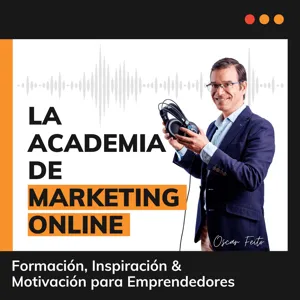Podcast Summary
The Importance of LinkedIn for Hiring and Economic Updates: LinkedIn is a crucial platform for hiring professionals, especially those not actively seeking new jobs. The UK reported significant productivity growth in 2021, but later corrections revealed it was not the fastest among G7 nations. Mint Mobile lowered the price of their unlimited plan, offering a more affordable option for consumers.
LinkedIn is a valuable resource for hiring professionals, especially those who aren't actively looking for new jobs. With over 70% of LinkedIn users not visiting other leading job sites, businesses risk missing out on potential great candidates if they don't post their jobs on LinkedIn. Additionally, the Office for National Statistics (ONS) in the UK reported a large increase in productivity growth for all G7 nations in 2021, with the UK experiencing the largest year-on-year increase at 22%. However, the ONS later issued a correction, stating that the UK's productivity growth was not the fastest among the G7 countries after all. Meanwhile, Mint Mobile announced a significant price drop for their unlimited plan from $30 to $15 per month. These are just a few of the key points from the podcast. The BBC podcast discussed the importance of utilizing LinkedIn for hiring professionals, as many potential candidates may not be actively looking for new jobs but could still be open to the perfect role. The podcast also highlighted the significant productivity growth experienced by all G7 nations in 2021, with the UK leading the way. However, it was later revealed that the UK's productivity growth was not the fastest after all. Lastly, Mint Mobile announced a price drop for their unlimited plan, offering a more affordable option for consumers. Overall, the podcast provided valuable insights on various topics, from hiring practices to economic data and consumer savings.
ONS calculates inflated productivity growth due to Excel error: A misaligned column in an Excel spreadsheet led to inflated productivity growth rates for several countries, including the UK, during the pandemic years. The importance of double-checking data and being cautious when using spreadsheets for critical calculations is emphasized.
A simple spreadsheet error in the Office for National Statistics (ONS) calculation led to inflated productivity growth rates for several G7 nations, including the UK, during the pandemic years. The mistake occurred due to the misalignment of two columns in Microsoft Excel, where one showed economic output (Gross Domestic Product or GDP) and the other showed the number of hours worked in that year. As a result, productivity was calculated as GDP divided by hours worked in different years, leading to incorrect and unusually high productivity growth rates. For instance, the UK's productivity was supposed to have grown by 22% in 2021 but was, in fact, wrong. The ONS acknowledged this as an unusual case, but Matt Parker, author of Humble Pi, emphasized that spreadsheet mistakes are more common than we think, especially in the public sector. This incident serves as a reminder of the importance of double-checking data and being cautious when using spreadsheets for critical calculations.
Excel errors with significant financial consequences: Double-check Excel calculations and ensure accurate data input to prevent financial losses
Excel errors, even seemingly minor ones, can lead to significant financial consequences. This was evident in various instances discussed, such as the Utah State Office of Education's $25 million miscalculation due to a faulty reference in a spreadsheet, and West Baraboo's $400,000 error due to missing the bottom cell in their selection. These errors are not exclusive to the public sector; private institutions like JPMorgan Chase have also experienced costly mistakes. In JPMorgan Chase's case, they miscalculated their value at risk by dividing the difference between two rates by their sum instead of the average, resulting in underestimated risk and eventual losses in the billions. These incidents underscore the importance of double-checking Excel calculations and ensuring accurate data input to prevent potential financial repercussions.
Errors in genetics research due to Excel's autocorrect feature: Excel's autocorrect feature can lead to significant errors in genetics research, affecting over 30% of published findings. Users must be vigilant and double-check data, as software companies may not take responsibility for fixing the issue.
Reliance on spreadsheets like Excel, which are widely used across various industries and disciplines, can lead to significant errors and inaccuracies, even in complex fields like genetics research. These mistakes can have serious consequences, yet the responsibility for addressing them often falls on the users rather than the software companies. In the case of genetics research, over 30% of published research now contains errors due to Excel's autocorrect feature confusing gene names with dates. Despite being aware of the issue, Microsoft has not taken responsibility for fixing it, leaving researchers to rename genes instead. This highlights the importance of being vigilant when using spreadsheets and the potential limitations of relying solely on these tools for data analysis. It also underscores the need for continuous checks and double-verifications to minimize errors and ensure the accuracy and reliability of research findings. Ultimately, while spreadsheets are convenient and accessible, they should be used with caution and supplemented with other tools and methods as needed.
Excel's strengths and limitations in error prevention: While Excel aids in calculations, it can't prevent human errors. Better tools and humans are needed to minimize mistakes. Acknowledging limitations and staying vigilant is key.
While Excel can be a useful tool for calculations, it also presents challenges when it comes to identifying and preventing human errors. Mathematician Matt Parker discussed this issue, suggesting that both better tools and better humans are needed to mitigate mistakes. Excel's strength lies in its ability to show all the steps in a calculation, but its limitations become apparent when dealing with one-off, bespoke calculations. As humans are prone to errors, it's crucial to work in an environment that acknowledges this and helps catch potential mistakes. Meanwhile, in a completely different context, we learned about the unwitting human face of a global con. Janessa Brazil, an adult entertainment star, has had her identity stolen and used by numerous Instagram accounts for romance scams. The reasons behind her popularity remain unclear, but it's clear that anyone can fall victim to these scams. The allure of love and connection can lead people to make impulsive decisions, making it essential to stay vigilant and protect oneself from potential fraud. In summary, whether it's in the realm of mathematics or online relationships, it's important to recognize the potential for errors and take steps to minimize their impact. By acknowledging the limitations of tools and the fallibility of humans, we can work towards creating safer, more accurate environments for all aspects of our lives.
Shop Quince for affordable, stylish travel essentials: Quince provides high-quality travel items at affordable prices with ethical manufacturing and free shipping & returns
Quince offers high-quality, stylish travel essentials at affordable prices, while ensuring ethical and safe manufacturing practices. With European linen, premium luggage, and buttery soft Italian leather bags, Quince allows you to elevate your travel style without breaking the bank. And with free shipping and 365-day returns, shopping for your next getaway has never been easier. Meanwhile, Shopify POS is a game-changer for retailers looking to sell in person. By uniting sales into one commerce platform, Shopify offers a comprehensive solution for payments, inventory management, and more. Sign up for a $1 per month trial period and start streamlining your in-person sales today.





